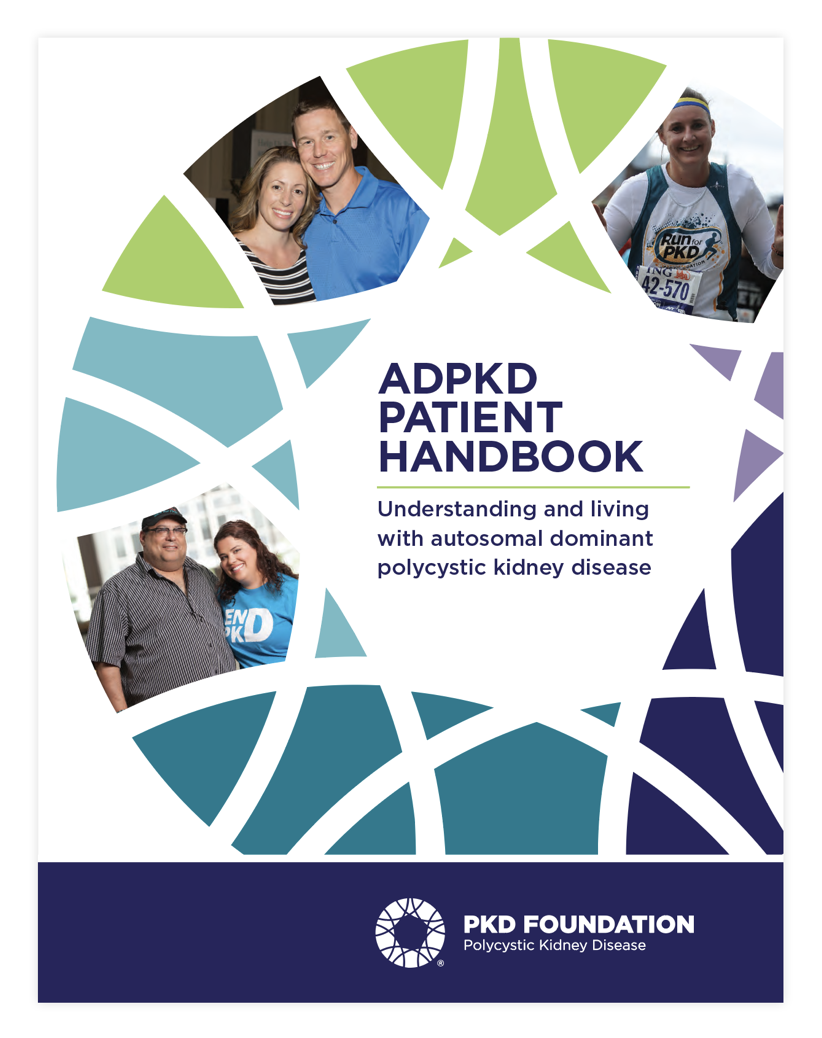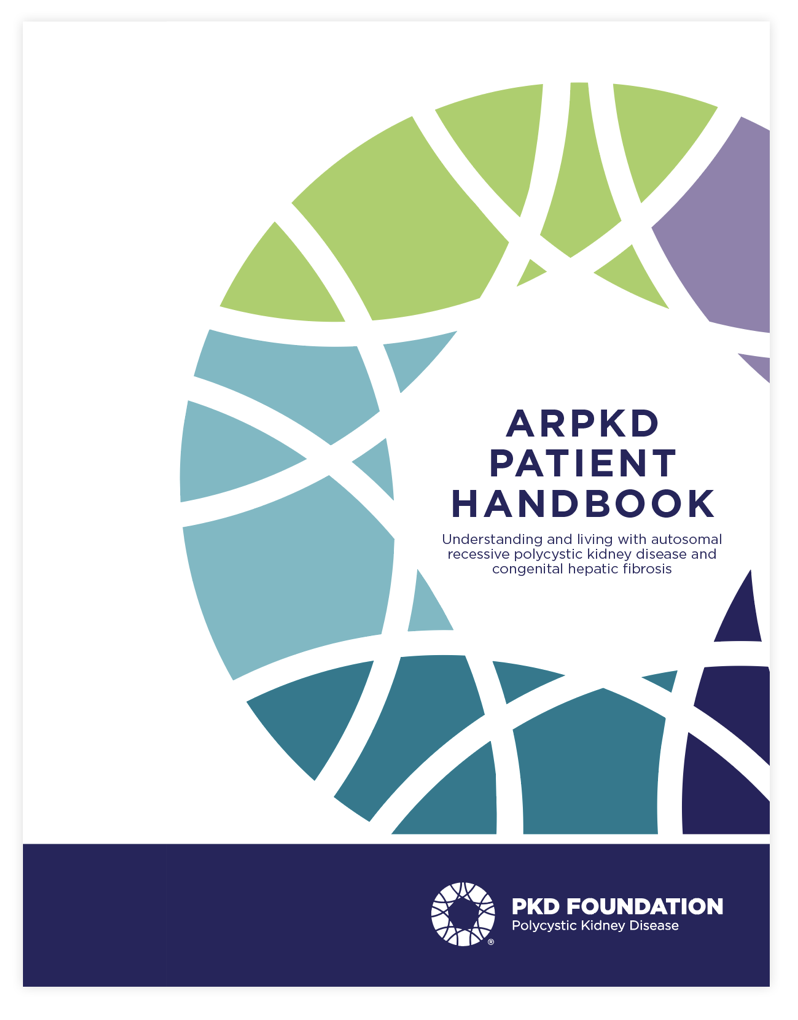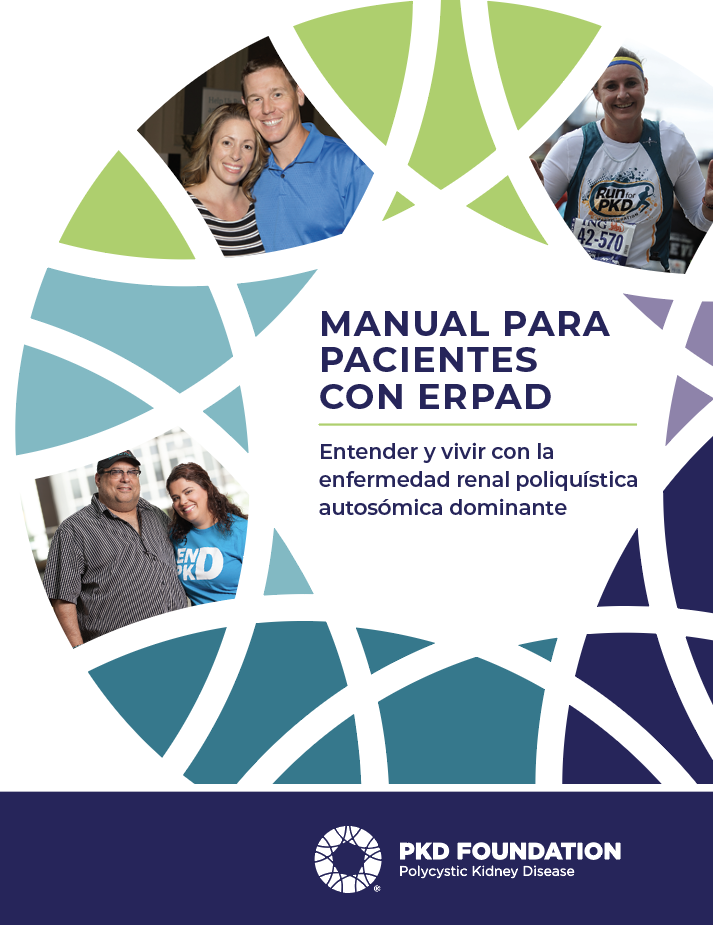Patient Handbooks
Thank you for your interest in a free information packet on polycystic kidney disease (PKD). This complimentary packet of resources includes general information about PKD and a PKD Patient Handbook.
- We are proud to offer both a digital and print version of the information packet and patient handbook at no cost to you.
- We ask that you please consider requesting the digital version as we do incur some costs to print and mail hard copies.
- We are only able to mail hard copy packets within the United States.
- The digital version will be sent to you immediately.
There are three versions of the handbook: one for autosomal dominant polycystic kidney disease (ADPKD), which is also available in Spanish, and one for autosomal recessive polycystic kidney disease (ARPKD).
ADPKD Patient Handbook

The purpose of this handbook is to provide information about ADPKD. It will be useful to those who have the disease, those who are at risk due to an affected parent as well as invested family members and friends. It is not intended for those affected by autosomal recessive polycystic kidney disease (ARPKD).
- ADPKD is the more common type and occurs in approximately 1 in 500 to 1 in 2000 live births.
- ADPKD is the fourth leading cause of kidney failure.
- Parents have a 50% chance of passing the disease to their children, so it often affects many people in one family.
El propósito de este manual es proporcionar información sobre la enfermedad renal poliquística autosómica dominante (ERPAD). Será un documento útil para aquellas personas que tienen la enfermedad, para las que tienen riesgo de tenerla debido a un progenitor afectado, así como para los familiares y amigos involucrados. No está dirigido a los pacientes con enfermedad renal poliquística autosómica recesiva (ERPAR). Para los pacientes con esta enfermedad, hay un manual disponible en pkdcure.org. En lo sucesivo, nos referiremos a la ERPAD simplemente como ERP.
ARPKD Patient Handbook

The purpose of this handbook is to provide information about autosomal recessive polycystic kidney disease (ARPKD) and congenital hepatic fibrosis (CHF). It will be useful to children and families who have been diagnosed with ARPKD/CHF, as well as family members, caregivers and health professionals. It is not intended for those with autosomal dominant polycystic kidney disease (ADPKD).
*We’re working on an updated version, coming in early 2024.
- ARPKD is a rare form of the disease that occurs in 1 in 25,000 children worldwide.
- Previously thought to be a fatal condition, the prognosis for children with ARPKD has improved dramatically.








